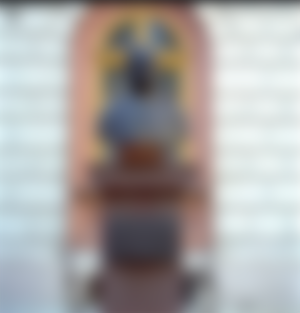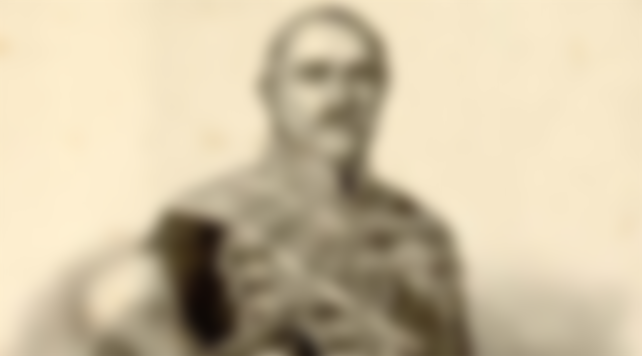What Dositej Obradović and Vuk Stefanović Karađić were in Serbia in education, Đordje Petrović-Karađorđe on the battlefield, Miloš Obrenović on the political field, Miša Anastasijević was in the field of economy.
One of the richest Europeans of his time, a great Serbian benefactor who helped the Belgrade Reading Room, the National Theater with thousands of ducats, lived in the 19th century and was a great Serbian merchant and benefactor, and his name was Miša Anastasijević.

Miša Anastasijević's birthplace is Poreč or Porječje, a mountainous area in the eastern part of Serbia, whose northern border is the Danube River.
Miša was unlucky to grow up with his parents. Mother Ruža, from complications from childbirth, died soon after, while father Anastas, after whom Miša got his surname, passed away two years later.
In the turbulent years of the First Serbian Uprising, the boy was raised by his stepmother Milja, who took care of him for the rest of her life.
He was of humble origins and that did not stop Misha from becoming a powerful merchant and one of the richest men of that time.
Miša Anastasijević was a man who knew how to use the moment and get the best out of every situation. He traded, presumably, everything - soap, cattle, salt - he worked as a customs officer and river supervisor.

The most crucial for his "career" were good relations with Prince Milos, the then ruler of Serbia, but also the greatest merchant. It was he who appointed him captain of the Danube in 1833, with a supervisory-arbitration role - hence the later nickname Captain Miša.
However, Miša Anastasijević gained his greatest wealth as a salt trader. He had a monopoly on the export of salt from the principality of Wallachia and Moldavia, and later on the import of salt from Austria-Hungary. He thus became one of the largest salt traders in the Balkans.
It had about ten thousand men in service, 23 warehouses in various parts, and at least 74 ships for transportation. Records say that at one point he owned 1.5 million ducats of cash, which secured him the position of one of the richest people in the Balkans.

Miša Anastasijević was a great benefactor and was considered a man who helped everyone who would ask for his help - he was the protector of writers and painters… he forgave debts, financed libraries and schools, gave clothes to women and dowries to poor girls.

The building at Studentski trg No. 1 in Belgrade is well known to all Belgraders, but also to generations of students who studied in Belgrade. It is the seat of the University of Belgrade, as well as the Department of Serbian Language at the Faculty of Philology and a seminar for Byzantine Greek, as well as the Department of Classical Languages at the Faculty of Philosophy.
The construction of the Captain-Misha building began in 1857. The house was built according to the plans of the Czech architect Jan Nevola and was supposed to be a wedding gift for Miša's daughter Sara and Prince Đorđe Karađorđević, son of Aleksa Karađorđević, the brother of Prince Aleksandar. Captain Miša Anastasijević tried to bring his son-in-law Đorđe to the throne of Serbia, but he did not succeed in that intention.
After that, Captain Miša ceded the building to accommodate several cultural and educational institutions of the then Principality of Serbia. Immediately after the construction, the Great School moved in, then the Gymnasium, then the Ministry of Education, the National Library, the National Museum and finally the Rectorate of the University of Belgrade.

Disappointed that he failed to bring Karadjordjevic to power and thus secure the title of ruler for his descendants, Captain Misa Anastasijevic left Serbia and rarely came later. He only came to Belgrade to visit his closest ones.
In the decades that followed, he left all salt business and after that he only spent and wasted money. Historians say this was probably crucially influenced by the fact that he had no male children. He died on January 27, 1885, at the age of 81.
His daughter Sara was married to George Karadjordjevic and had two sons - Alex and Bozidar, but they had no descendants, so Captain Misha's lineage died out forever.





Hundreds of doctors and therapists are already taking advantage of this knowledge. Doctors of various cultures have been treating many diseases with water and salt for thousands of years! Due to industrialization, the original knowledge of crystalline salt was completely lost. Salt is not a medicine, but a food. A change in diet is urgently needed. Crystalline salt dissolves excess toxic waste in the body, which is flushed with clean water. Water and salt cleanse our bodies just as a washing machine cleans our laundry.